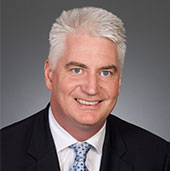Exclusive forum provisions (in a corporation’s bylaws or charter) designate a specific court(s) to serve as the exclusive venue(s) for intra-corporate litigation—e.g., derivative suits; actions (including class actions) asserting breach of fiduciary duty by a director, officer, or other employee to the corporation or its shareholders, and other disputes asserting claims under the internal affairs doctrine. These provisions are intended to address multi-forum litigation – a well known and particularly vexatious problem in the context of mergers and acquisitions. For example, in 2013, 94 percent of all U.S. mergers and acquisitions over $500 million resulted in litigation, with an average of 6.2 lawsuits per deal and over 60% of deals litigated in more than one court. By contrast, in 2007, only 53% of public company deals over $500 million resulted in litigation. By adopting an exclusive forum provision, a corporation seeks to avoid the costs and uncertainty of parallel litigation, the risk of inconsistent rulings, and the possible misapplication of law (typically Delaware corporate law) by a foreign court(s).
In 2010, in response to this strike-suit trend and to Vice-Chancellor Laster’s comments in In re Revlon Inc. Shareholders Litigation, public companies began adopting exclusive forum provisions in their bylaws and charters. 990 A.2d 940 (Del. Ch. 2010) (suggesting that boards could promote efficiency and add value by adopting exclusive forum provisions in their corporate charters). However, the bylaw adoption (which typically requires only unilateral board action and not stockholder approval) of these provisions came to a screeching halt in 2012 after 12 nearly identical lawsuits were filed in the Court of Chancery for the State of Delaware challenging the validity of exclusive forum bylaw provisions.
Although 10 of the 12 defendant corporations repealed their bylaw provisions, Chevron and FedEx opted to litigation. And last year, in Boilermakers Local 154 Retirement Fund v. Chevron Corp., the Delaware Chancery Court upheld the facial validity and enforceability of exclusive forum bylaw provisions. 73 A.3d 934 (Del. Ch. 2013) (“Chevron“). In that case, then-Chancellor Strine (now Chief Justice of the Delaware Supreme Court) ruled that the boards of directors of Chevron and FedEx (Delaware corporations) were authorized to unilaterally amend the company’s bylaws to designate a specific court as the “exclusive forum” for certain intra-corporate litigation (e.g., derivative actions, breach of fiduciary duty claims, actions under the DGCL, cases involving the internal affairs doctrine). Plaintiffs appealed the decision to the Delaware Supreme Court, but subsequently abandoned that appeal (presumably to avoid a binding precedent from the highest court, who many expected to uphold the decision).
In the wake of this decision, over 150 Delaware corporations adopted or announced plans to adopt such a provision. (See, e.g., Claudia Allen, “Trends in Exclusive Forum Bylaws,” Director Notes of The Conference Board Governance Center, January 2014.) Further, since the Chevron decision, courts in New York, Louisiana, Illinois, and California have upheld exclusive forum selection provisions and dismissed shareholder litigation as a result. See, e.g., HEMG Inc. v. Aspen Univ., No. 650457/13, 2013 WL 5958388 (N.Y. Sup. Ct. Nov. 4, 2013); Genoud v. Edgen Group Inc., No. 625,244 (19th Jud. Dist. Ct., East Baton Rouge, La., Jan. 17, 2014); Miller v. Beam Inc., No. 2014 CH 00932 (Ill. Cir. Ct. March 5, 2014); Groen v. Safeway Inc., No. RG14716641 (Cal. Super. Ct. Alameda County May 14, 2014).
The most recent endorsement came from the Delaware Chancery Court, who, in City of Providence v. First Citizens BankShares, Inc., again upheld the validity of a forum selection bylaw provision. C.A. No. 9795-CB (Del. Ch. Sept. 8, 2014) (slip op. available at here). In that case, the board of directors adopted a forum selection bylaw which was virtually identical to the provisions upheld in Chevron, with one notable exception: it selected the state and federal courts of North Carolina, instead of Delaware, as the exclusive forum. In rejecting the plaintiff’s challenge to the validity of the provision, Chancellor Brouchard declared that he was “compelled by the logic and reasoning of the Chevron decision,” and held that “nothing in the text or reasoning of Chevron can be said to prohibit directors of a Delaware corporation from designating an exclusive forum other than Delaware in its bylaws.”
In light of these developments, we recommend that all public company boards strongly consider adopting an exclusive forum bylaw (or charter) provision. We recommend they do so during a formal meeting (rather than by way of UWC), that they consult with counsel, thoroughly discuss whether such a provision would be in the best interest of the corporation and its stockholders, and create a written record of the board’s informed, independent, and disinterested consideration. We also recommend that boards adopt an “elective” forum selection provision, which generally begin with the language: “Unless the Corporation consents in writing to the selection of an alternative forum …” See Chevron, 73 A.3d at 954 (stating that the elective consent language allows boards “to meet their obligation to use their power only for proper corporate purposes”).
Further, we recommend that, if possible, boards adopt an exclusive forum bylaw provision on a “clear day”—i.e., in advance of any sales process or anticipated shareholder litigation, or when the board is already aware of misconduct—to avoid a possible challenge predicated on inequitable conduct. See, e.g., Roberts v. TriQuint SemiConductor, Inc., No. 1402-02441 (Or. Cir. Ct. Aug. 14, 2014) (refusing to enforce forum selection bylaw provision that was adopted in connection with approval of a stock-for-stock merger transaction and denying defendants’ motion to dismiss). Boards should also consider the potential reaction of proxy advisory firms. For example, if an exclusive forum bylaw provision is adopted by unilateral board action, then the adoption will not, by itself, cause ISS to recommend voting against the directors. Glass Lewis will, however, recommend withholding votes from the chair of the governance committee at the next shareholder meeting. Lastly, for those companies incorporated in Delaware, we recommend that they specifically designate the Delaware Chancery Court as the exclusive forum for intra-corporate disputes, but that they also include a carve-out (designating a state or federal court in Delaware) for situations in which the Chancery Court lacks jurisdiction.



